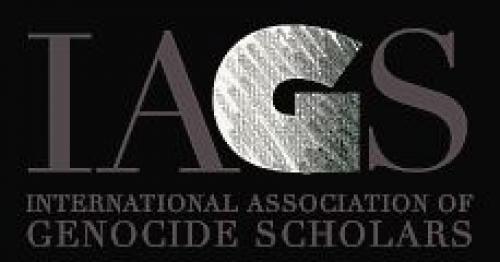The Aftermath of Genocide: Victims and Perpetrators, Representations and Interpretations

10th Biennial Conference of the International Association of Genocide Scholars
June 19-22, 2013, Siena
CALL FOR PAPERS
The way societies deal with the violence and massacres of the recent past is one of the aspects of genocide studies that needs to be interpreted, deepened and fully analyzed.
Representations and interpretations shape the way societies perceive their past, which impacts on their attitudes and behaviors. In an age where the role of communication is increasing, representations (narratives, images, arts, especially spread by popular culture) often constitute the standard way of becoming aware of the past, especially for new generations.
We need to understand the meaning of the atrocities that genocides produce not only during the events but also after the genocide (revenge, hatred, fear, mutual stereotypes, denial, desensitization, generalized mistrust or suspicion, among other effects). We need to deal not only with the intentionality of group destruction, but also with the different consequences of the destruction in its aftermath.
Do we need to invest in the knowledge (and representation) of the cruel acts or do we risk voyeurism and masochism? For scholars, it is crucial to understand an important genocidal moment in history, but how are these events represented and popularized? The memory of the cruelty is one of horror for the victims, but of what power do the representations instill for the perpetrators? How are the issues of revenge, hatred and denial represented in popular culture and in “official” narratives such as museums? How do the representations coincide with the narratives of the victims?
The IAGS, the University of Siena and the Kingston University welcome papers and sessions on all aspects of genocide, particularly those devoted to our conference theme, 'The Aftermath of Genocide. Victims and Perpetrators, Representations and Interpretations'.
Innovative panels, workshops, and papers that consider the dynamics, causes, and consequences of genocide, issues of memory, interpretation and representation, and analysis of victims and perpetrators are welcomed. Besides panels and papers, the organizers encourage other modes of dialogue, including workshops, roundtable discussions, cultural media, and artistic works/readings, including forums that relate to policy initiatives, pedagogy, and education. Scholars, practitioners, activists and students interested in genocide studies from all disciplines are encouraged to apply.
Papers will be accepted in English and should be sent as an attachment to the following email address; iags2013siena@gmail.com.
Once the proposals are accepted by the selection committee, participants are required to register on-line at: www.genocidescholars.org where IAGS and conference material will be found. All participants should be IAGS members.
Information on accommodation and further details about the conference can be found also in www.genocidescholars.org.
Abstracts should include full name, affiliation, a brief CV, e-mail address, and be no more than 250 words, using single-spaced in 12-point Times New Roman font.
Any questions may be directed to the conference organizers, Marcello Flores, Daniel Feierstein and Donna Lee Frieze at: iags2013siena@gmail.com.
